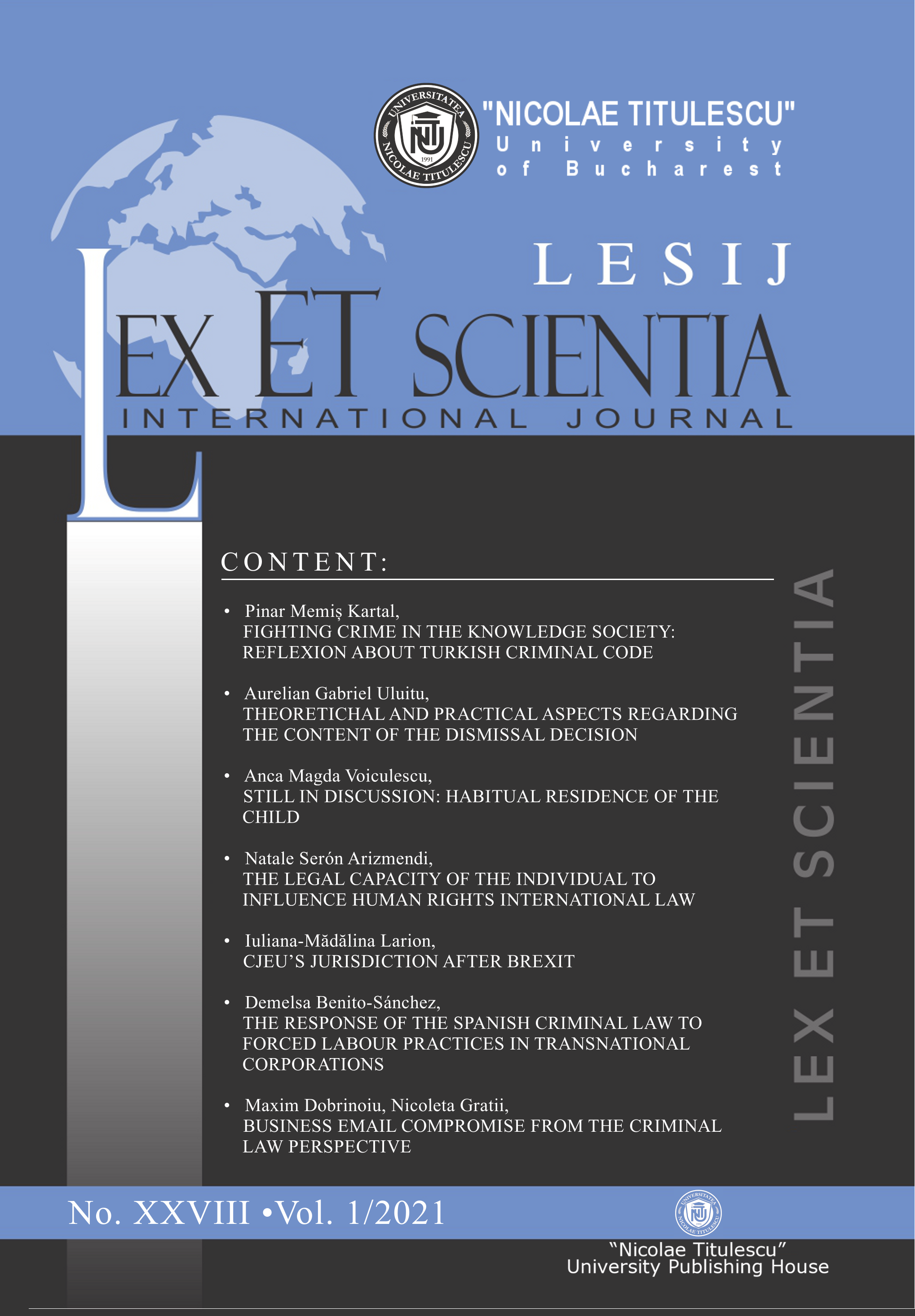THE RESPONSE OF THE SPANISH CRIMINAL LAW TO FORCED LABOUR PRACTICES IN TRANSNATIONAL CORPORATIONS
THE RESPONSE OF THE SPANISH CRIMINAL LAW TO FORCED LABOUR PRACTICES IN TRANSNATIONAL CORPORATIONS
Author(s): Demelsa Benito-SánchezSubject(s): Administrative Law
Published by: Universitatea Nicolae Titulescu
Keywords: criminal responsibility; forced labour; slavery; Spanish Criminal Code; transnational corporations;
Summary/Abstract: This paper aims at studying the criminal liability according to the Spanish law of transnational companies for imposing forced labour on citizens in other countries. The objective is to elucidate whether, under the Spanish law, it is possible to penalise Spanish companies that carry out these practices abroad, practices that are clearly harmful to fundamental rights. For criminal prosecution in Spain to be possible, certain requirements must be met. First, it is necessary that the Spanish Criminal Code acknowledges that legal persons can be held liable. This is a reality since year 2010, although there are a number of problems in attributing responsibility to the parent company for the conducts carried out abroad by the subsidiary. Second, it is required that the Spanish Criminal Code expressly provides that legal persons may be responsible for this type of offences (offences against workers” rights). This is not currently foreseen by the Spanish Criminal Code. Third, it is needed that the Spanish courts are able to prosecute extraterritoriality these criminal offences. This is not possible at the moment according to the current Spanish legislation. Given the situation described, this paper proposes the necessary legal reforms to make it possible to penalise Spanish companies that impose forced labour practices abroad since these practices entail violations of fundamental rights.
Journal: LESIJ - Lex ET Scientia International Journal
- Issue Year: XXVIII/2021
- Issue No: 1
- Page Range: 146-157
- Page Count: 12
- Language: English

